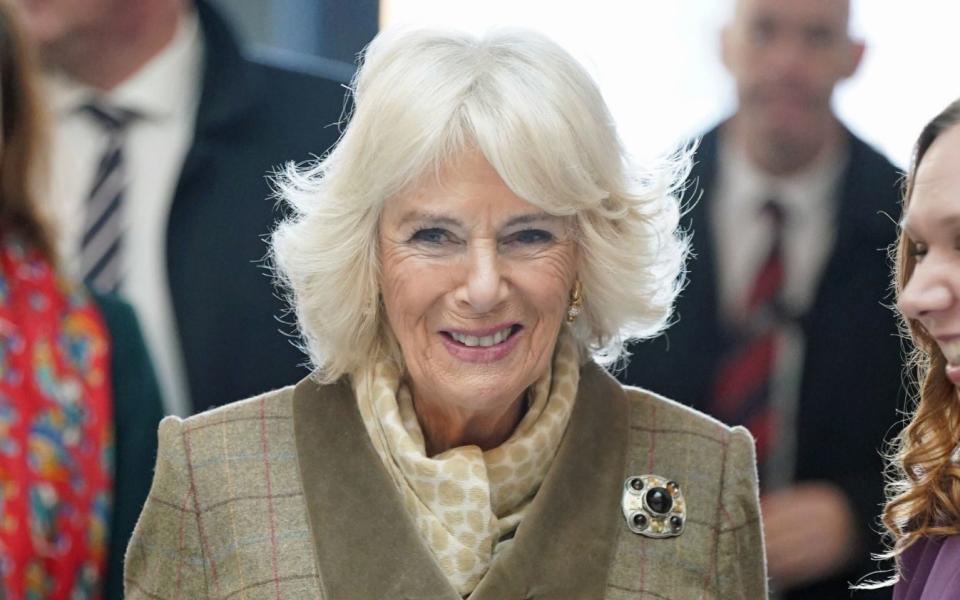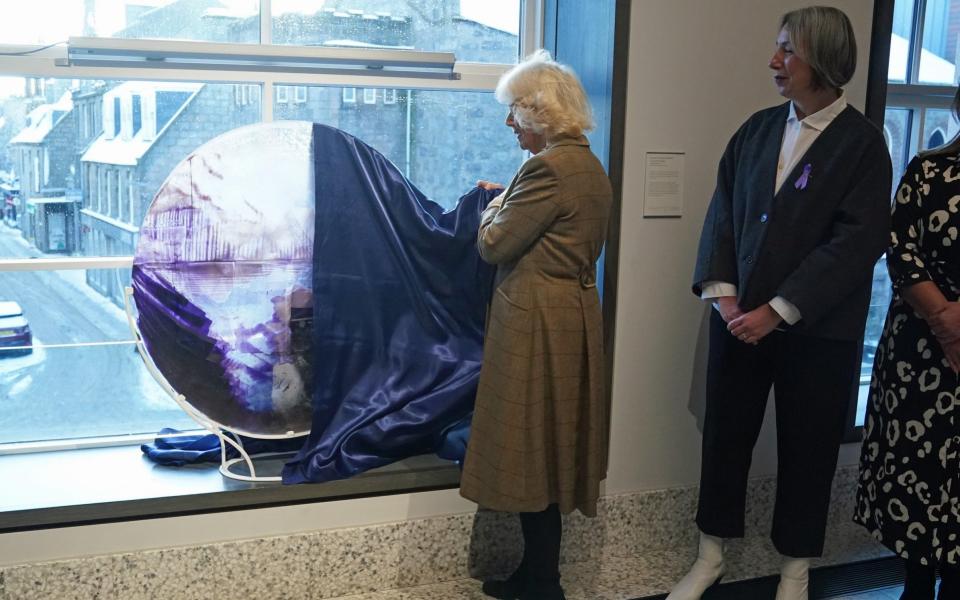King doing ‘fine’ but won’t return to duty ‘for a couple of weeks’
The King is unlikely to return to public duties for several weeks, it emerged on Thursday, as the Queen revealed he was “fine” but “looking forward to getting back to work”.
Camilla, 76, was asked about her husband’s welfare as she attended an official royal engagement in Scotland – the first since it emerged that the monarchy was facing an unprecedented double health blow.
Buckingham Palace announced on Wednesday that the King, 75, was suffering with an enlarged prostate and would be admitted to hospital next week for a “corrective procedure”.
Just 90 minutes earlier, Kensington Palace revealed that the Princess of Wales had undergone abdominal surgery and would be out of action until Easter. The Prince of Wales, who has also cancelled all public engagements to care for his wife, was seen visiting her at the private London Clinic on Thursday.
With three senior royals out of action, it was left to the Queen to fly the flag as she ploughed on with public duties.
On arrival at Aberdeen Art Gallery, where she opened a new safe space for domestic abuse victims, Camilla was asked by the Lord Provost, Dr David Cameron, how the King was doing.
“He’s fine, thank you very much,” she replied. “Looking forward to getting back to work.”

The palace has insisted that despite the monarch’s planned hospitalisation, Counsellors of State will not be required to step in to undertake matters of state on his behalf.
But although he will continue receiving his daily red boxes of government papers, he is not expected to return to public duties for “a few weeks” as he recuperates.
The King is a notorious workaholic and aides are aware that despite medical advice to rest for around three or four weeks, he will be keen to be back up and running as soon as possible.
The palace has not disclosed where Charles, who is currently at Birkhall, his private residence on the Balmoral estate, will undergo treatment.
The King’s Serjeant Surgeon is Ranan Dasgupta, a urological surgeon who specialises in specific forms of treatment for an enlarged prostate.
Mr Dasgupta, who was appointed to the Medical Household last March, works at several hospitals, including the London Clinic, where he offers two treatments, aquablation therapy and prostate artery embolisation, for benign prostate hyperplasia, otherwise known as an enlarged prostate.
His profile on the London Clinic’s website reveals that he is married with children and, like the King, is a fan of classical music.

Mr Dasgupta’s predecessor as Serjeant Surgeon was Satyajit Bhattacharya, a consultant surgeon who specialises in surgery for gallstones, hernias, liver disease and pancreatic disease.
Dr Bhattacharya, known as Satya, also works at the London Clinic, where Elizabeth II was treated for gastroenteritis in March 2013 and Prince Philip had an exploratory abdominal operation there the following month.
He worked as Surgeon to the Royal Household from 2006 to 2016 and as Serjeant Surgeon to Elizabeth II from 2016 until March 2023. The Serjeant Surgeon is the most senior surgeon in the Medical Household.
The King was diagnosed with an enlarged prostate on Wednesday after attending a check-up earlier in the week.
He was forced to cancel engagements scheduled for today and tomorrow at Dumfries House in Ayrshire after suffering from symptoms linked to his condition.
Aides said he was “very keen” that the details of his diagnosis were revealed to encourage others in his position to get checked out.
NHS England officials revealed on Thursday there had already been a significant increase in searches for the condition on the NHS website.
There were 16,410 visits to the page on Wednesday – an average of one visit every five seconds – compared with 1,414 visits on Tuesday, NHS England officials said.
Meanwhile, Her Majesty said she hoped many other cities would follow suit as she opened a new “Safe Space” for domestic abuse victims at Aberdeen Art Gallery.
She said: “It’s so important having a safe space for people who have undergone all these terrible things.
“Somewhere where they come and feel safe and have somebody to talk to who understands what they’re going through, so I think you’re pioneers to have it in this wonderful gallery which I’ve had the pleasure of visiting before and, just to say, it helps so much with this campaign to hopefully one day obliterate this terrible domestic abuse.”
She said she thinks that “Scotland is going the right way about it,” adding: “You just need more people to get involved and more people to be heard because the more it’s talked about the more people are able to do something about it.”

 Yahoo News
Yahoo News 
